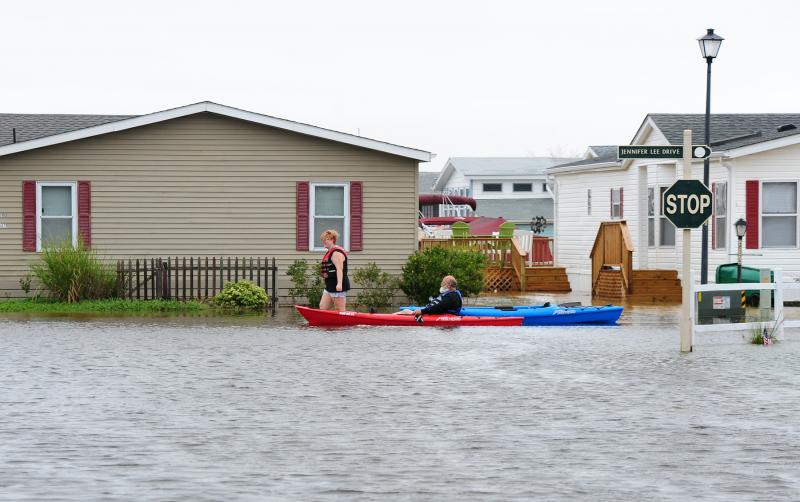Marianne Walch is proud of the new stormwater management plan for Dewey, but she knows it’s not going to fix all the town’s flooding issues.
There are always going to be flooding issues in Dewey, said Walch, Center for the Inland Bays science and restoration coordinator.
With that in mind, property owners in Dewey, and other flood-prone communities across the country, rely on the federal government’s National Flood Insurance Program to start anew when flooding occurs.
In early September, President Donald Trump backed a short-term debt ceiling extension and government funding measure in approving relief funding for Hurricane Harvey. As part of the package, the flood insurance program, scheduled to expire Sept. 30, was extended.
Don Griffin, Property Casualty Insurance Association vice president of personal lines, said the extension gives property owners peace of mind in the short term, but long term, he said, the problem remains. If nothing is done, the program will expire, he said, adding he would like to see a 5-year re-authorization of the program.
Griffin said, as of June 30, Delaware had 26,182 flood insurance policies. Florida, he said, has 1.7 million. He said the program was created in 1968, and currently has accrued about $25 billion in debt.
Griffin said he and his colleagues support efforts to encourage private insurance companies to participate in the program. He said Congress should pass reforms to allow the private sector to issue risk-based rates.
There needs to be help for consumers and, said Griffin, getting the private sector involved will relieve taxpayers of part of the burden.
Griffin said he expects to see a doubling in the number of flood insurance policies by 2023.
“Just because you don’t live in a 100-year floodplain, doesn’t mean you won’t have exposure to flood losses,” he said. For example, he continued, 50 percent of the properties damaged by Hurricane Harvey weren’t required to have flood insurance.
Delaware’s congressional delegation agrees the flood insurance program needs to continue.
Sen. Tom Carper said the country is witnessing some of the most severe weather many have ever seen, and the program has helped hundreds of thousands cope with the damages.
“Congress must put the program on the right footing going forward, not leave it further in debt, so that it can pay out claims when a natural disaster strikes,” he said in an emailed statement.
Due to the state’s low-lying lands, Rep. Lisa Blunt Rochester said, Delaware is greatly impacted by changing storm patterns and sea level rise. As a result, she said, coastal communities and their residents rely heavily on the program to mitigate and repair damage from increasingly extreme storms.
“Congress has no time to waste in reauthorizing the program to ensure we are meeting the needs not only of our communities that have been tragically impacted by storms and floods, but also to ensure we are maintaining stability in our economy and housing market,” she said.
Rep. Chris Coons said it’s imperative the insurance program be reauthorized because so much of Delaware is at or near sea level. He said the three-month extension was reassuring, but, he said, Congress also needs to work together in a bipartisan way to a long-term solution.
Chris Flood has been working for the Cape Gazette since early 2014. He currently covers Rehoboth Beach and Henlopen Acres, but has also covered Dewey Beach and the state government. He covers environmental stories, business stories and random stories on subjects he finds interesting, and he also writes a column called Choppin’ Wood that runs every other week. He’s a graduate of the University of Maine and the Landing School of Boat Building & Design.






















































